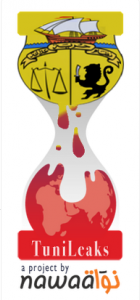 On World Press Freedom Day Article 19 tells how new technologies and new possibilities connected with them are changing traditional way of spreading, sharing information and how some countries are trying to change that. The story is divided into two symbolical parts: “No frontiers” and “New barriers”.
On World Press Freedom Day Article 19 tells how new technologies and new possibilities connected with them are changing traditional way of spreading, sharing information and how some countries are trying to change that. The story is divided into two symbolical parts: “No frontiers” and “New barriers”.
Here you can read the full text with many examples to each barrier or a new media, eliminating it.
No Frontiers
Throughout the last year a series of revelations have sent shockwaves across the world. Photos, reports, articles, messages and videos originating in one place are instantly shared with another. Outrage and embarrassment spread in equal measure, corruption is magnified, people-power amplified, and governments fall.
Wikileaks
Wikileaks has revolutionised transnational whistleblowing. Today, people can publish information in the public interest rega rdless of where they live, and with minimal possibility of being traced. Information uploaded in New York can rapidly impact current affairs in countries as far removed as Nepal, Nicaragua, Nigeria or Norway.
rdless of where they live, and with minimal possibility of being traced. Information uploaded in New York can rapidly impact current affairs in countries as far removed as Nepal, Nicaragua, Nigeria or Norway.
Wikileaks has proven so popular that there are now a number of similar websites, including: BalkanLeaks, BrusselsLeaks (European Union), IndoLeaks (Indonesia) OpenLeaks, RuLeaks (Russia), TuniLeaks (Tunisia) and TradeLeaks.
Facebook
Facebook provides a space where people can come together without boundaries or hierarchies. Ethiopians and Eritreans, Israelis and Palestinians, Azerbaijanis and Armenians, Indians and Pakistanis, all befriend one another. Ideas are set forth, beliefs debated and mistruths deconstructed. Causes attract gigantic audiences and interest groups form to consider, challenge or solve problems. Protests are organized and revolutions supported.
Real time reporting
Real-time reporting by citizen journalists was made possible with the launch of Twitter in July 2006.
Important stories have since been broken on Twitter including the 2008 Mumbai bombings and the 2008 Greek riots.
Greek riots.
Today, over 200 million Twitter users publish 65 million tweets per day, about 13 per cent of which are regarded as news or high quality information. Twitter breaks the trend of other social media networks, with high representation from older adults and women.
Al Jazeera
Founded in the tiny emirate of Qatar, Al Jazeera stands against the model of stateowned media or of powerful interests establishing global media to further their goals, political or otherwise.
Following a different agenda, Al Jazeera has ridden and in many ways shaped growing movements to challenge oppressive governments in the Middle East and North Africa. It has not always been popular. Due to it agenda, more than any other channel, its offices have been closed, burned and bombed, and its reporters attacked, detained and killed by many sides to many conflicts.
New Barriers
Governments are however beginning to fight back. Attempts to curtail global information flows have focused on trying to force national boundaries and barriers on transnational currents. Limits are ill defined and punishments vague and imprecise, resulting in real threats to freedom of expression.
Three of the world’s most visited online hubs are social media websites. Two, Facebook and Twitter, are subject to regular bans and blocks by governments worldwide for fermenting dissent. The Chinese government tightly controls the third, Baidu.
Authoritarian governments have an interest not only in stopping people from organising online, but also from preventing them from accessing information outside of the traditional control of censorship mechanisms.
traditional control of censorship mechanisms.
YouTube
YouTube videos were watched 700 billion times in 2010, with people uploading 25 hours of footage every minute of the day. Before YouTube was established, only the mass media could choose and disseminate video. Today, citizen journalists use the platform to show what the mainstream media misses intentionally or unintentionally.
Despite the vast amount of content available, from educational videos to entertainment, several governments have banned YouTube in its entirety. These include Armenia, Brazil, Bangladesh, China, Indonesia, Iran, Libya, Morocco, Pakistan, Sudan, Russia, Thailand, Tunisia, Turkey, Turkmenistan, United Arab Emirates.
New telecommunication technologies
Telecommunication developments have also become more of a threat to authoritarian governments. Five years ago, the majority of telephones were connected via landlines and were consequently easy to monitor and with clear ownership. Today the substantial growth in mobile phone ownersh ip and the spread of Voice-Over-Internet-Protocol (VOIP) technology has led to at least 5.5 billion registered mobile phones and almost 200 million VOIP users.
ip and the spread of Voice-Over-Internet-Protocol (VOIP) technology has led to at least 5.5 billion registered mobile phones and almost 200 million VOIP users.
As physical frontiers decrease and location-based public spaces are sidelined, vast global spaces are rapidly growing. Such spaces, owned by corporations and known as “private publics”, “public commons” or the “quasi-public sphere”, can be a source of communication and outreach. They can also be the source of new barriers as citizens become consumers or users, and laws previously used to protect, no longer apply.
Such corporations have also often reacted over-fastidiously in applying terms and conditions in situations where they risk aggravating authoritarian governments with which they are trying to do business.
Blocking and jamming
Over the last year, authoritarian governments have increasingly responded by utilizing technology to create new barriers. Algeria, Burma, Egypt, Libya, Syria and Tunisia have reportedly shut down access to the internet for everyone during periods when information flows have become too uncontrollable.
 North Korea has gone a step further and created an internal intranet in order to remain isolated from the world, and the Iranian government has announced the development of a similar technology.
North Korea has gone a step further and created an internal intranet in order to remain isolated from the world, and the Iranian government has announced the development of a similar technology.
Governments such as Libya have used new technology to jam satellite broadcasting, despite the complaints of surrounding countries, all of which are affected. China, Russia and Vietnam have allegedly developed substantial departments of highly trained experts carrying out covert hacking on dissenting sources of information.
Others are focusing on introducing new laws that substantially limit ISPs and make private corporations responsible for the actions of their users.
Related articles:
Threats to internet freedom – political censorship and government control over infrastructure
Azerbaijani bloggers sentenced
Belarus follows China in curbing freedom of information on the internet
Amnesty International Norway calls China to follow Google
Index on Censorship welcomes Google stand on free expression
China: the art of web censorship
Five billion people in the world have the right to information
Iran: one year after elections – importance of internet and small media
10 tactics on how to defend your rights
Public Data Accessibility in Georgia
Nadezhda Nizovkina and Tatiana Stetsura sentenced to a fine
Russian lawyers arrested ahead of freedom of expression campaign
Detention of human rights defenders in Buryatia
Electronic HR education for lawyers: call for applications launched


